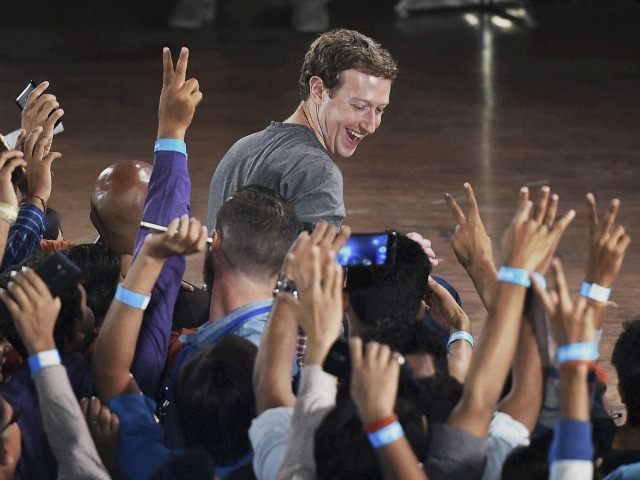A big chunk of the world is cheering the fact that India was gutsy enough to shut down Facebook’s “Free Basics,” because even the poor can recognize corporate digital colonialism.
Facebook launched its Free Basics/Internet.org in more than 35 countries as a supposedly free way to obtain access to data for 5 billion poor people who currently have no Internet access. But the product only allowed access to Facebook and a few other “pet” sites in a “walled garden,” TechCrunch notes.
The product created a backlash among local Indian entrepreneurs, who felt that the service institutionalized an uneven playing field for Internet service providers who were denied the right to join. Facebook retaliated by reportedly spending $44 million on a PR campaign supporting Free Basics and demeaning the local activists.
After months of bitter protests that the Facebook opponents referred to as the modern “Quit India,” in celebration of Mahatma Gandhi’s efforts to expel the British in 1942, the Telecom Regulatory Authority of India suspended the free Facebook service in December.
Six weeks later, on February 8, the regulators imposed the type of net neutrality Facebook aggressively lobbied for and won in the U.S. to prevent telecommunications companies from charge discriminatory pricing for different Web services. The move essentially killed Free Basics’ business model, which was all about creating a monopoly.
Meanwhile, the European Commission’s investigation of Facebook is providing an excellent window into just how insidious Facebook’s business model has become. Facebook uses sophisticated algorithms to “eavesdrop” on its users, no matter what the privacy settings are. Information extracted focuses on the users’ political opinions, sexuality, religious beliefs, income and whereabouts.
Most users know that Facebook develops and maintains sophisticated internal profiles of users based on the comments they make on social media and the posts that they “like” within its social network. But what few are aware of is Facebook’s use of “plug-ins” that integrate Facebook features on third-party websites for the company to eavesdrop outside of the Facebook site.
To maximize its ability to tie data-mining information to each specific individual, Facebook has also required a “real-name” policy since its implementation. The policy requires users to create real profiles in order to “help keep our community safe.”
But a critical article in the Washington Times suggests that the “real-name” policy has also made the Facebook community unsafe for some users. The company claims to be implementing changes to address these concerns, but tech analysts believe selling that type of data to advertisers is what makes Facebook profitable.
Facebook was forced by the EU regulators to admit that they are tracking people on other websites. If a Facebook user researches a new television on an external website or inside of a mobile app, his or her profile is tagged for advertisers to know that a user on another site has indicated an interest in televisions and in electronics. Facebook then sells the data to advertisers pitching electronic devices that want to reach a Facebook user.
But the European Community regulators consider that a violation of privacy rights, since the Facebook user never agreed to allow the company to follow him or her to another site. A new EC Directive was issued in January, just before the Indian regulator’s move, that will ban such targeted advertising unless a user has specifically agreed to allow it.
Despite Facebook already having 132 million of the 252 million Indian monthly active users in late 2015, Board member Mark Andreessen was so angry over having the government tell him what he could or could not do, he tweeted sarcastically, “Anti-colonialism has been economically catastrophic for the Indian people for decades. Why stop now?”
The colonialist comment caused a firestorm of protests across India.
I apologize for any offense caused by my earlier tweet about Indian history and politics. I admire India and the Indian people enormously.
— Marc Andreessen (@pmarca) February 10, 2016
Eventually, CEO Mark Zuckerberg was forced to disown the racial statement with a public apology.

COMMENTS
Please let us know if you're having issues with commenting.